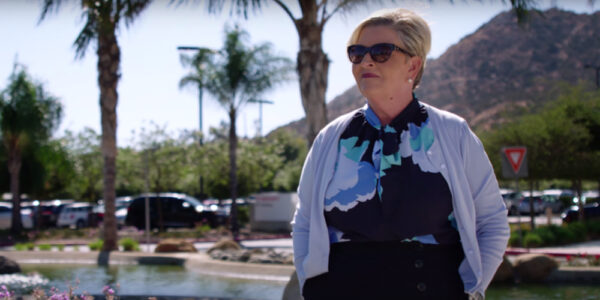Linda Sánchez, a graduate of Loma Linda University Behavioral Health Substance Use Recovery and Wellness Program in Murrieta, California, United States, is one of many individuals who suffered years of trauma in her childhood but never took the time to deal with the deep-seated pain. “I pushed everything I went through down and didn’t want to acknowledge that there was a problem,” Sánchez says.
Childhood trauma is a risk factor for nearly all mental health and substance abuse disorders, according to the U.S. Substance Abuse and Mental Health Services Administration (SAMHSA). The significant correlation shows substances such as alcohol being used to bury past pain or abuse.
After years of pushing down the trauma, Sánchez turned to alcohol. It started as something fun, but soon, fun became a problem, and then the problem became a necessity. That’s when she decided she needed to get help.
Sánchez met with her primary care physician, who suggested attending a Loma Linda University Behavioral Health program. “When I started the program, it was to deal with the alcohol addiction, but it became so much more than that,” she says.
In the program, Sánchez confronted the underlying factors from her childhood trauma with a healthy support system surrounding her. “I felt like an onion — they kept peeling layers back, and once we got to the root of the problem, we were able to work on ways to recover,” she says.
For many years, her family tried to help her, but they didn’t understand the reasons behind her habits, she says. By attending classes with Sánchez, her family was able to support her in new and meaningful ways.
Sánchez says showing up was the most challenging part, but her family’s support made it possible. “Once I walked through those doors and met the others who are in similar situations, I knew I wasn’t alone,” she says. “Even though we were from different backgrounds, we all had one big burden in common.”
After Loma Linda University Behavioral Health, Sánchez’s life has made a complete turnaround. “I get up in the morning now with purpose instead of a drink,” she says. “My relationship with my family is stronger than it’s ever been, and I have the tools needed to be successful.”
Now more than four years after graduating from the program, Sánchez says the tools she gained from the program have helped her deal with any stressful situation she may face — not just those surrounding substance abuse. “I carry around this toolbox of things I learned in the program, and now and again, I have to pull something out and use it,” Sánchez says. “But knowing you have the tools can make situations a lot more manageable.”
The original version of this story was posted by Loma Linda University Health News.


